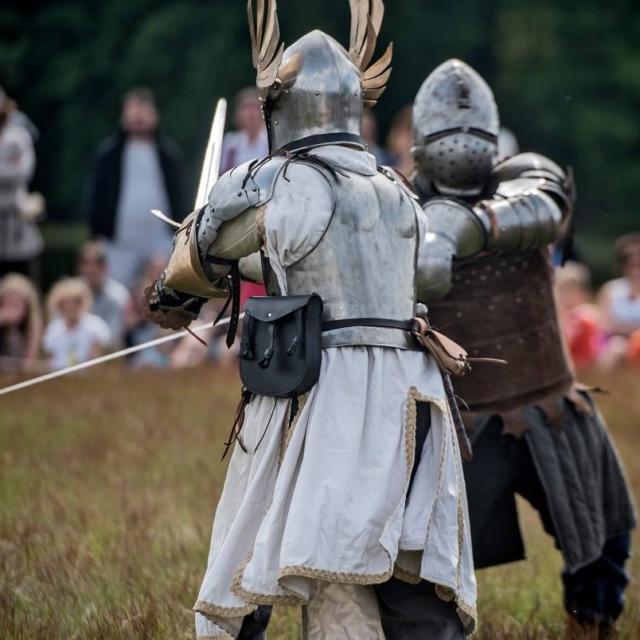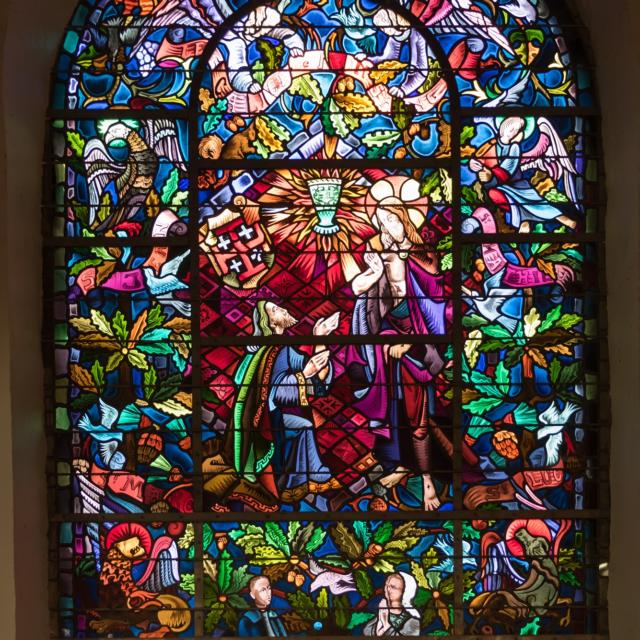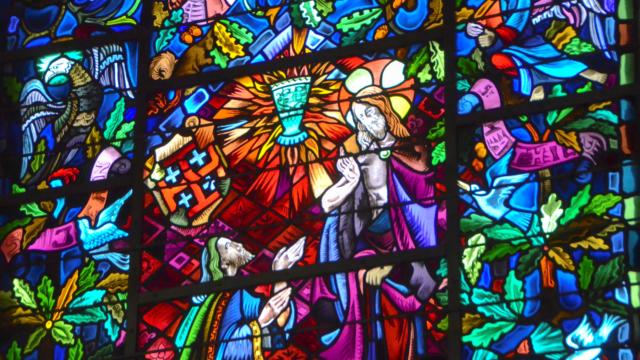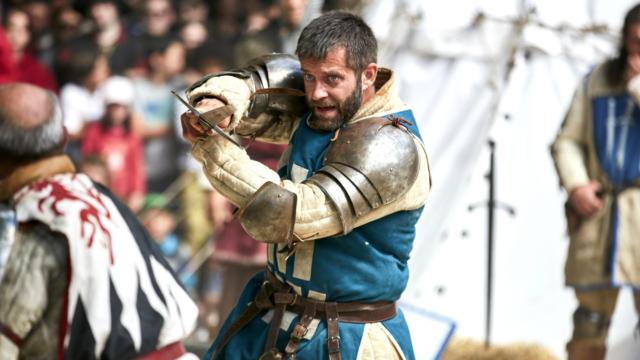 Pentecôte Du Roi Arthur
Pentecôte Du Roi Arthur
 Epée Trémelin Emmanuel Berthier (2)
Epée Trémelin Emmanuel Berthier (2)Arthur, a legendary character with a destiny all his own
The coming into the world of King Arthur was ordered by the supernatural forces of which Merlin is the executor. Son of Uther Pendragon, Arthur was born under the aegis of the dragon, the fabulous animal he wore on his banner. He was born in Tintagel, in a castle that disappeared during each solstice. His sister Morgane is endowed with magical talents and he himself is visited by prophetic dreams. Magic, and through it, the divine powers, must preside over his entry into life. Arthur’s youth is similar to that of many Indo-European heroes. Unaware of his origins, the young man is raised far from power, sheltered in a retreat ignored by all, and proves to be a promising warrior.
A King Beloved of the Fairies
Once the king has proven himself worthy of the trust of the Otherworld (Vivian herself tells him he is the beloved of the fairies) supernatural beings flock to his glittering court at Camaalot. From his youth, Arthur confronts terrifying, non-human powers. He exterminates the primitive forces of chaos, the bloodthirsty king Rhitta and the giant of Mont-Saint-Michel, but also the Chapalu, a monstrous cat that comes out of the lake.
Text written by Claudine GLOT, Centre de l’imaginaire Arthurien (CIA)



